Zhen-Qun Yang
Predicting Student Dropout Risk With A Dual-Modal Abrupt Behavioral Changes Approach
May 16, 2025

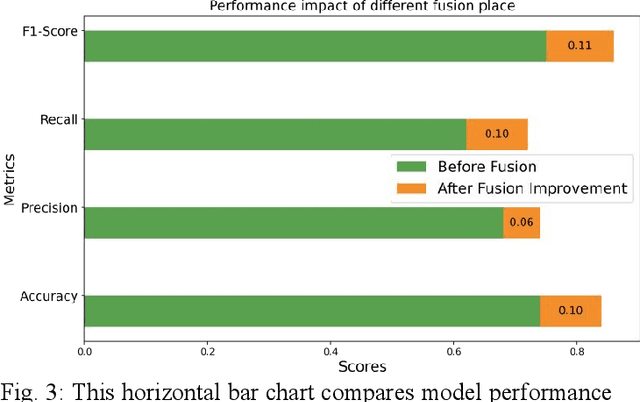
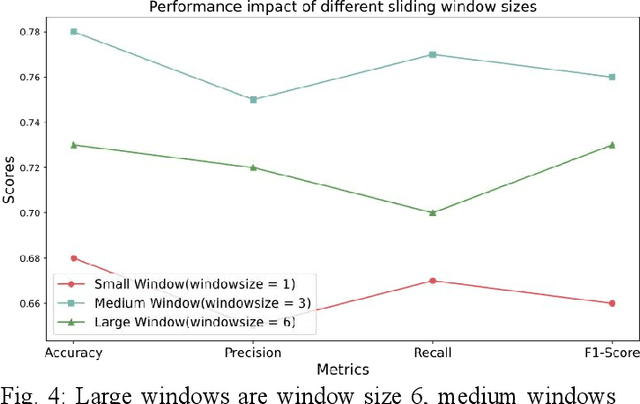
Abstract:Timely prediction of students at high risk of dropout is critical for early intervention and improving educational outcomes. However, in offline educational settings, poor data quality, limited scale, and high heterogeneity often hinder the application of advanced machine learning models. Furthermore, while educational theories provide valuable insights into dropout phenomena, the lack of quantifiable metrics for key indicators limits their use in data-driven modeling. Through data analysis and a review of educational literature, we identified abrupt changes in student behavior as key early signals of dropout risk. To address this, we propose the Dual-Modal Multiscale Sliding Window (DMSW) Model, which integrates academic performance and behavioral data to dynamically capture behavior patterns using minimal data. The DMSW model improves prediction accuracy by 15% compared to traditional methods, enabling educators to identify high-risk students earlier, provide timely support, and foster a more inclusive learning environment. Our analysis highlights key behavior patterns, offering practical insights for preventive strategies and tailored support. These findings bridge the gap between theory and practice in dropout prediction, giving educators an innovative tool to enhance student retention and outcomes.
Cardiac Evidence Backtracking for Eating Behavior Monitoring using Collocative Electrocardiogram Imagining
Feb 20, 2025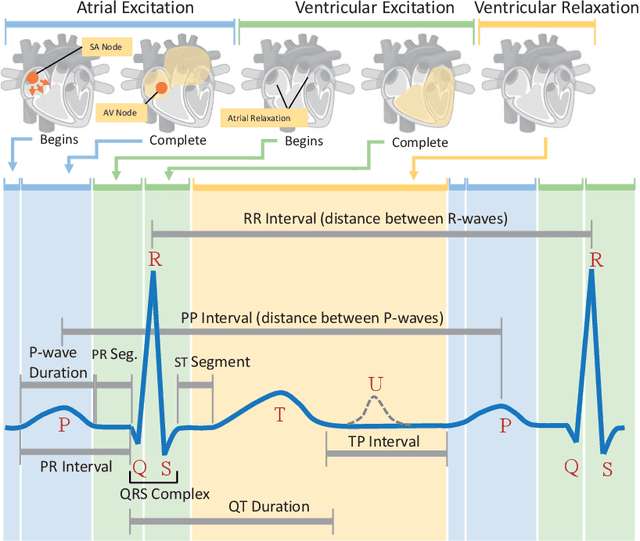
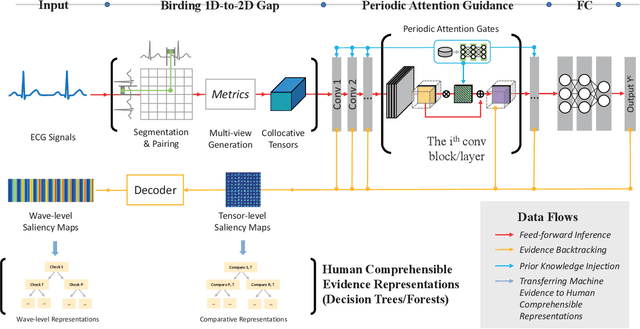
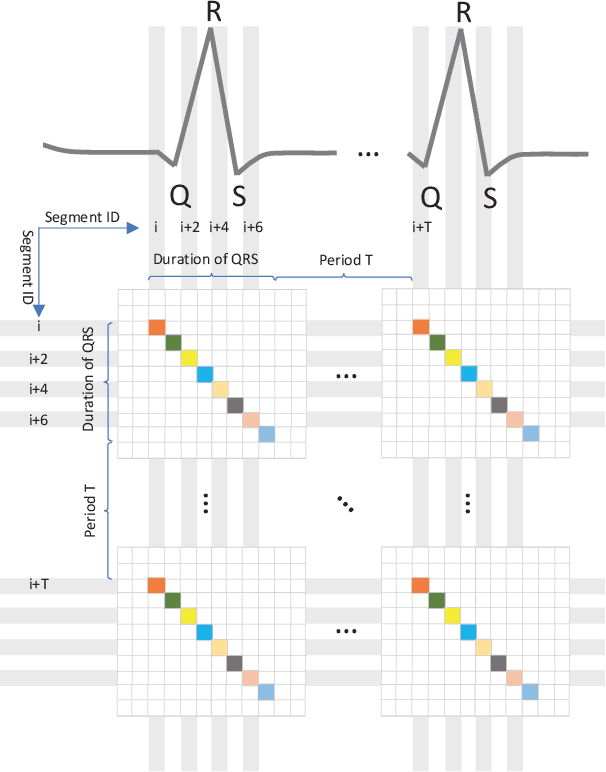
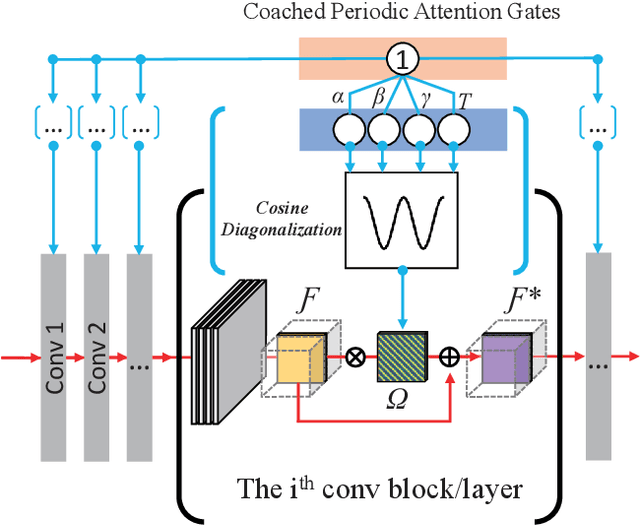
Abstract:Eating monitoring has remained an open challenge in medical research for years due to the lack of non-invasive sensors for continuous monitoring and the reliable methods for automatic behavior detection. In this paper, we present a pilot study using the wearable 24-hour ECG for sensing and tailoring the sophisticated deep learning for ad-hoc and interpretable detection. This is accomplished using a collocative learning framework in which 1) we construct collocative tensors as pseudo-images from 1D ECG signals to improve the feasibility of 2D image-based deep models; 2) we formulate the cardiac logic of analyzing the ECG data in a comparative way as periodic attention regulators so as to guide the deep inference to collect evidence in a human comprehensible manner; and 3) we improve the interpretability of the framework by enabling the backtracking of evidence with a set of methods designed for Class Activation Mapping (CAM) decoding and decision tree/forest generation. The effectiveness of the proposed framework has been validated on the largest ECG dataset of eating behavior with superior performance over conventional models, and its capacity of cardiac evidence mining has also been verified through the consistency of the evidence it backtracked and that of the previous medical studies.
Heterogeneity-aware Cross-school Electives Recommendation: a Hybrid Federated Approach
Feb 19, 2024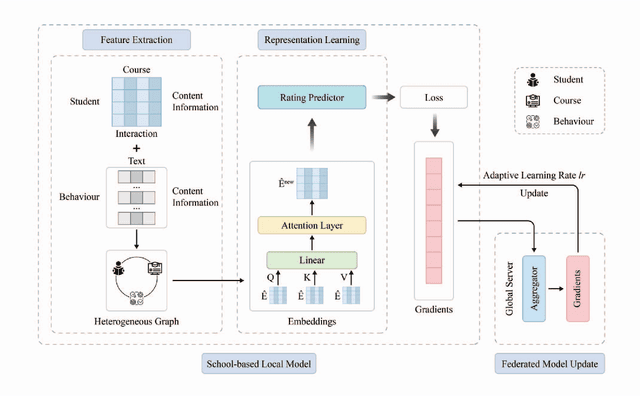
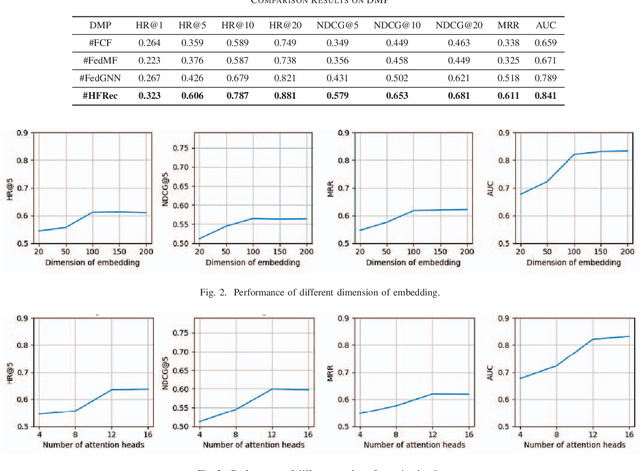
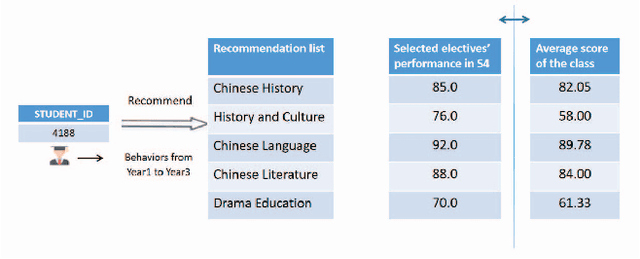

Abstract:In the era of modern education, addressing cross-school learner diversity is crucial, especially in personalized recommender systems for elective course selection. However, privacy concerns often limit cross-school data sharing, which hinders existing methods' ability to model sparse data and address heterogeneity effectively, ultimately leading to suboptimal recommendations. In response, we propose HFRec, a heterogeneity-aware hybrid federated recommender system designed for cross-school elective course recommendations. The proposed model constructs heterogeneous graphs for each school, incorporating various interactions and historical behaviors between students to integrate context and content information. We design an attention mechanism to capture heterogeneity-aware representations. Moreover, under a federated scheme, we train individual school-based models with adaptive learning settings to recommend tailored electives. Our HFRec model demonstrates its effectiveness in providing personalized elective recommendations while maintaining privacy, as it outperforms state-of-the-art models on both open-source and real-world datasets.
Conceptor Learning for Class Activation Mapping
Jan 21, 2022Abstract:Class Activation Mapping (CAM) has been widely adopted to generate saliency maps which provides visual explanations for deep neural networks (DNNs). The saliency maps are conventionally generated by fusing the channels of the target feature map using a weighted average scheme. It is a weak model for the inter-channel relation, in the sense that it only models the relation among channels in a contrastive way (i.e., channels that play key roles in the prediction are given higher weights for them to stand out in the fusion). The collaborative relation, which makes the channels work together to provide cross reference, has been ignored. Furthermore, the model has neglected the intra-channel relation thoroughly.In this paper, we address this problem by introducing Conceptor learning into CAM generation. Conceptor leaning has been originally proposed to model the patterns of state changes in recurrent neural networks (RNNs). By relaxing the dependency of Conceptor learning to RNNs, we make Conceptor-CAM not only generalizable to more DNN architectures but also able to learn both the inter- and intra-channel relations for better saliency map generation. Moreover, we have enabled the use of Boolean operations to combine the positive and pseudo-negative evidences, which has made the CAM inference more robust and comprehensive. The effectiveness of Conceptor-CAM has been validated with both formal verifications and experiments on the dataset of the largest scale in literature. The experimental results show that Conceptor-CAM is compatible with and can bring significant improvement to all well recognized CAM-based methods, and has outperformed the state-of-the-art methods by 43.14%~72.79% (88.39%~168.15%) on ILSVRC2012 in Average Increase (Drop), 15.42%~42.55% (47.09%~372.09%) on VOC, and 17.43%~31.32% (47.54%~206.45%) on COCO, respectively.
 Add to Chrome
Add to Chrome Add to Firefox
Add to Firefox Add to Edge
Add to Edge